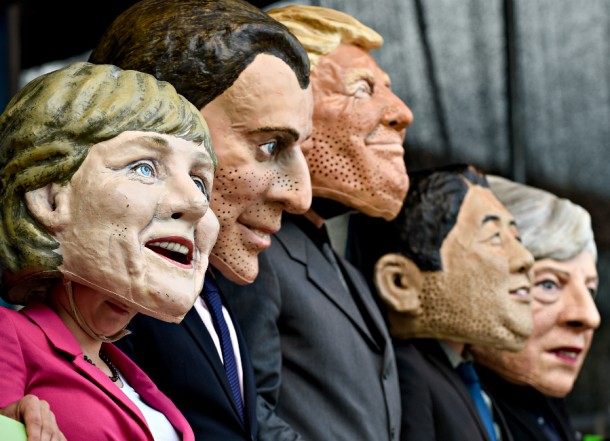-Essay-
LAUSANNE — The cult of the strong man is back at the forefront of our societies, albeit in different forms. There are strong-man politicians, military leaders, even autonomous survivalists. And yet as formidable as he may be, the strong man finds himself challenged by someone even better, even more powerful: the augmented man.
Against him, the strong man becomes fragile like the rest of us. Becoming aware of this shared fragility, which is far from being a problem, is a great opportunity for us to rethink our societies in terms of solidarity. The idea that "unity makes strength" has never been truer than at this time, when technology is regarded, more and more, as the ultimate remedy to our biological weaknesses.
In the era of the augmented man, of techniques to improve our physical and intellectual abilities, of digital medicine, of predictive medicine, of artificial intelligence, we will considered more often as imperfect or dysfunctional. We will become patients who ignore themselves, because the inherent weakness in our status as a living organism — and therefore mortal and perfectible — becomes a "disease" to be treated.
This arms race for technological augmentation will be an endless one. We'll always want more.
By defining health as "a state of complete physical, mental, and social well-being and not merely the absence of disease or infirmity," the World Health Organization helps (perhaps without meaning to) establish a social context in which we'll soon need to improve technologically this perfectible machine that is our body, to tend towards a sort of "total health."
Humans are fragile. Some reckon that an efficient way to overcome this fragility is to augment our capabilities through technology. Some go as far as to suggest we merge with machines in order to stay competitive. This might look like an attractive possibility, because it will not only make those who resort to these technological transformations stronger, it will also erase certain inequalities and place individuals at similar levels of performance. The problem, though, is that this arms race for technological augmentation will be an endless one. We'll always want more.
There is an alternative: We can rethink our need for solidarity. We can use the awareness of our shared fragility to unite. We can think of the technologically augmented human as just a distorted mirror of our fragility, a pipe dream meant to reassure us.
Paradoxically, what little technological improvement we're already using reinforces our awareness of our fragility. We get angry when we don't immediately get confirmation that our SMS was sent or when, in an unknown city, we can't use the GPS function on our telephones. We get annoyed when there's no coverage in the mountains to check the weather forecast. We're constantly reminded of our fragility and it won't go away.
Some believe that only those who are physically or mentally strong will survive in the new world that is supposedly coming. The sick, like those who suffer from handicaps, should move aside not to be a burden. But our greatest strength is to prevent anybody from being in that position. To help others in their fragility is also to become aware of our own fragility. In his famous book Sapiens: A Brief History of Humankind, historian Yuval Noah Harari reminds us that our fragility as human beings is largely compensated by our ability to cooperate with one another. According to him, it's actually what allowed our species to prosper.
In the era of the augmented man, we are witnessing an individualization of responsibilities and a reduction of solidarity among individuals. We expect, for instance, everybody to count how many steps they take each day, how many calories they've ingested in the past 24 hours or to assess the quality of his sleep. We also expect that the data thus generated be made public as a means to control and, for example, to "sanction financially inactive individuals who don't comply with sanitary and social expectations with higher insurance premiums," as Swiss biology professor Vincent Menuz recently wrote in The Huffington Post. What we forget too often is that we don't get to choose where we're born. Similarly, we don't choose to fall ill, to have an accident or to be born with a handicap.
Let us praise the progress of medicine that helps us lessen our pains and sufferings and improve our longevity and life quality. But our human fragility will not be swept away by technology. It's here to stay. And we will only continue to prosper by uniting and showing solidarity. What's left for us to determine is how this solidarity will take shape. But as we face the idea of an ever-augmented man, we should also perhaps rediscover our own fragility. For it is an essential characteristic of our human condition, a cornerstone on which to build our civilization.
See more from Opinion / Analysis here






